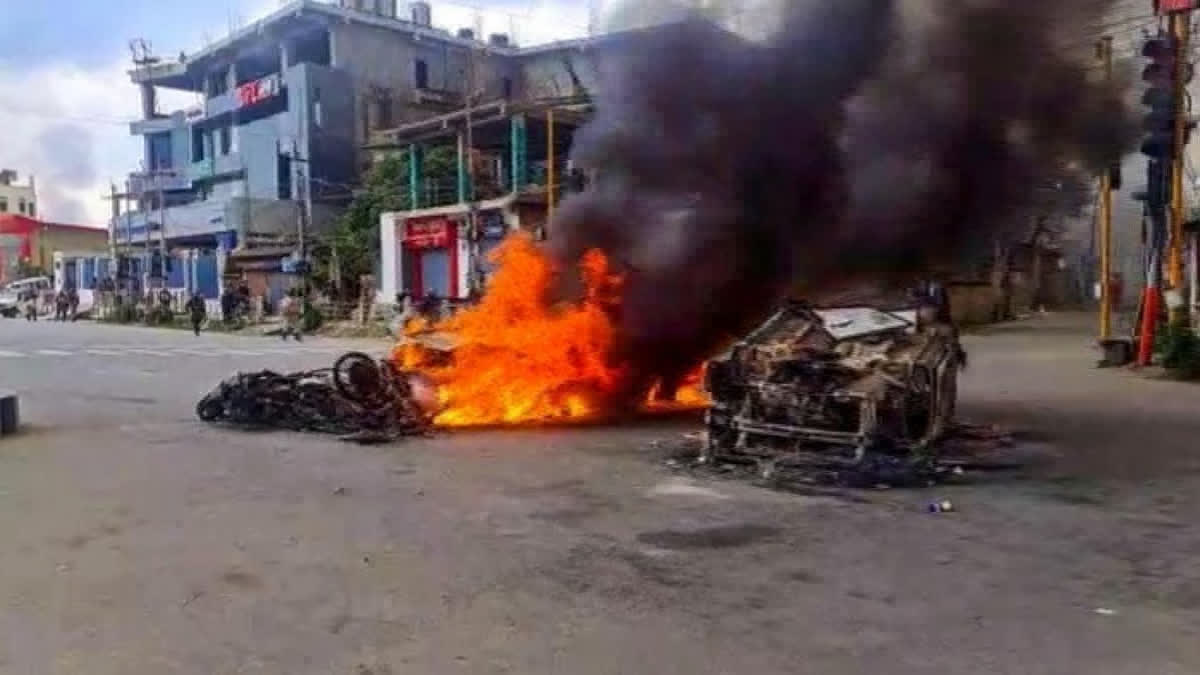New Delhi: Even as Union Home Minister Amit Shah has called for an all-party meeting on June 24 over the Manipur situation, experts are sceptical over any immediate outcome to end the crisis in the northeastern state. Speaking to ETV Bharat, writer and academician Pradip Phanjoubam said that the outcome is dependent on the proposals in the meeting.
"But I don't think there can be an immediate solution. However, the participants in the meeting should come with good plans," said Phanjoubam. He said that the present crisis reveals the complex matrix of relationships between the states' many communities, particularly between its three major ethnic groups -- the Nagas, Kukis and Meiteis.
"What is clear is the fault lines are not just along ethnic boundaries. There is also a hill-valley divide which corresponds roughly with the tribal-non-tribal divide, in which Nagas and Kukis are on one side and the Meiteis on the other," said Phanjoubam. He said that the hills form 90 per cent of the state's land mass and are deemed exclusive for those recognised as Scheduled Tribe (ST).
"The 10 per cent valley is where the non-tribal Meiteis are confined. This area is open to settlement by any Indian including hill tribes. And now a section of Meiteis are demanding ST saying this would level out perceived discrepancies," he said. Renowned writer and former BBC journalist, Subir Bhaumik said that the present "blunder was done by the government in Delhi and Manipur".
